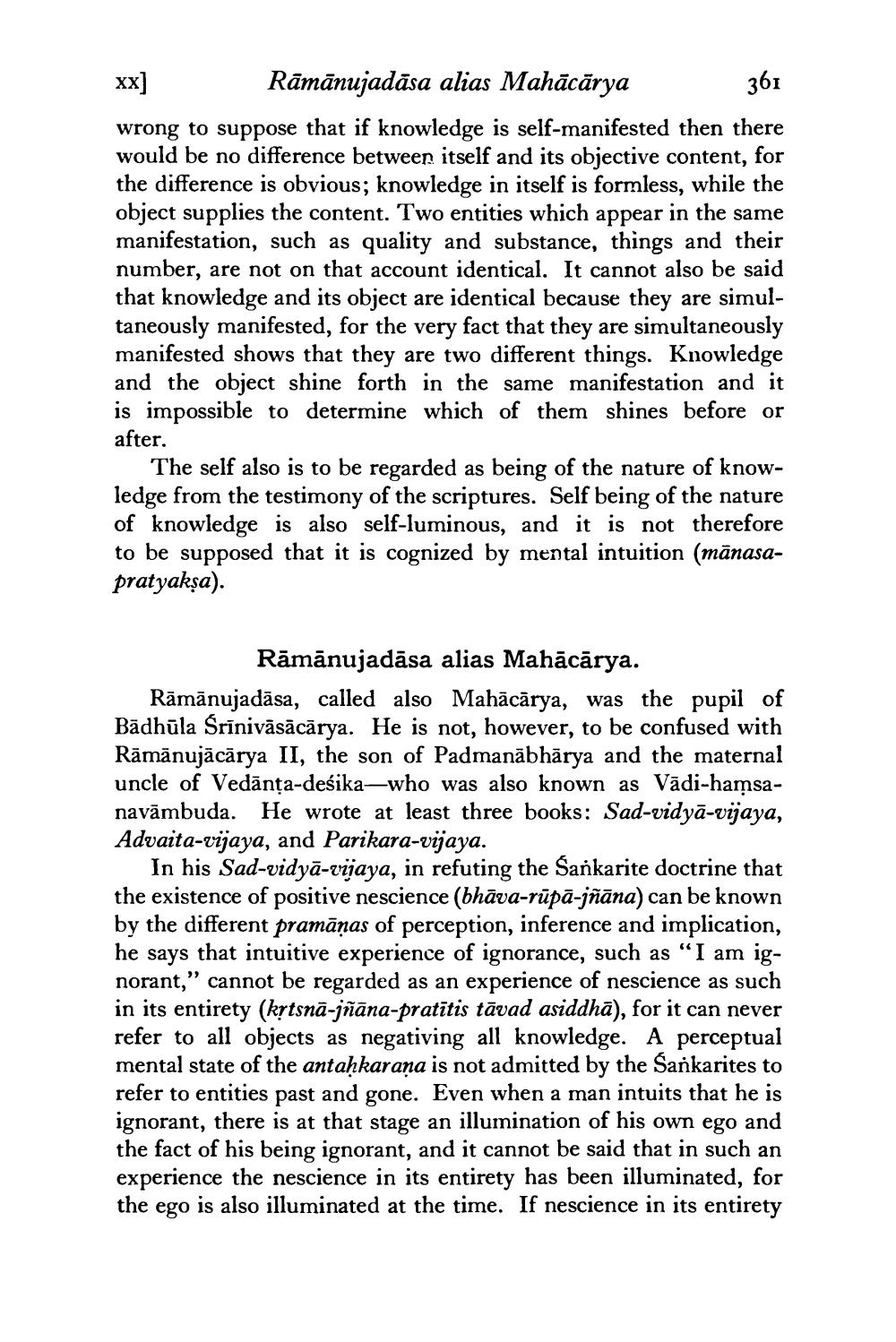________________
XX]
Rāmānujadāsa alias Mahācārya 361 wrong to suppose that if knowledge is self-manifested then there would be no difference between itself and its objective content, for the difference is obvious; knowledge in itself is formless, while the object supplies the content. Two entities which appear in the same manifestation, such as quality and substance, things and their number, are not on that account identical. It cannot also be said that knowledge and its object are identical because they are simultaneously manifested, for the very fact that they are simultaneously manifested shows that they are two different things. Knowledge and the object shine forth in the same manifestation and it is impossible to determine which of them shines before or after.
The self also is to be regarded as being of the nature of knowledge from the testimony of the scriptures. Self being of the nature of knowledge is also self-luminous, and it is not therefore to be supposed that it is cognized by mental intuition (mānasapratyakşa).
Rāmānujadāsa alias Mahācārya. Rāmānujadāsa, called also Mahācārya, was the pupil of Bādhūla Śrīnivāsācārya. He is not, however, to be confused with Rāmānujācārya II, the son of Padmanābhārya and the maternal uncle of Vedānta-deśika—who was also known as Vādi-hamsanavāmbuda. He wrote at least three books: Sad-vidyā-vijaya, Advaita-vijaya, and Parikara-vijaya.
In his Sad-vidyā-vijaya, in refuting the Sankarite doctrine that the existence of positive nescience (bhāva-rūpā-jñāna) can be known by the different pramānas of perception, inference and implication, he says that intuitive experience of ignorance, such as “I am ignorant, cannot be regarded as an experience of nescience as such in its entirety (kȚtsnā-jñāna-pratītis tävad asiddha), for it can never refer to all objects as negativing all knowledge. A perceptual mental state of the antahkarana is not admitted by the Sankarites to refer to entities past and gone. Even when a man intuits that he is ignorant, there is at that stage an illumination of his own ego and the fact of his being ignorant, and it cannot be said that in such an experience the nescience in its entirety has been illuminated, for the ego is also illuminated at the time. If nescience in its entirety




